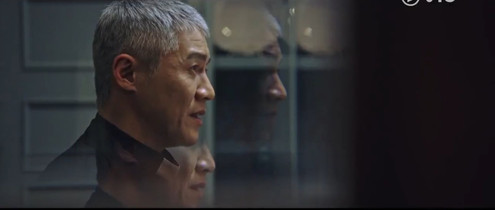Taxi Driver 2: The Important Message in the Second Leg of Revenge Taxi
- Drama Banter

- Apr 14, 2023
- 4 min read
This second journey of Taxi Driver and our beloved team of Avengers is reprised by the ever so enigmatic Lee Je Hoon as Kim Do Gi, Kim Eui Sung as Jang Sung Chul, Pyo Ye Jin as Ahn Go Eun, Jang Hyuk Jin as Choi Kyung Goo, Bae Yoo Ram as Park Jin Eon, and the great addition of Shin Jae Ha as On Ha Joon, a villain motivated solely by his distaste for humans is one that I wanted so badly, as I was a massive fan of the first leg of the journey, which touched me deeply.
I knew I would like the second season, and I did, but on a different scale than the first. The second is brilliant, and as I continued to watch it week after week, I realized it was as good as the first, and in some cases even better, even if it was not as awestriking as the first. But as the journey neared its end, I understood it wasn't meant to be as good but rather as impactful, and it is indeed.
Even as I say this, the first season was dynamic. The differences to me were in the punishments. The first journey was meant to serve as a loud message to society and the law enforcement and justice community. And that was evident in how daring, loud, elaborate, and grandiose the punishments were, befitting of the cruel and, in some cases, unfathomable crimes. The team dynamic was terrific in the first journey. In this second one, I felt, for most of the first half, and much into the second, the team lacked the chemistry that made them so great. Their interactions could have been more fluid and less forced. But still, I loved this journey for the message it was trying to share.
Yes, the punishments this season seemed subdued and sometimes felt incomplete or a walk back, not befitting the level of crimes. At first, I thought maybe it was because the first journey was heavily criticized for how cruel the punishments were, which I disagreed with entirely, as all the penalties befitted the horridly overwhelming crimes it brought to light. It was daring and brilliant, not only in how it showcased but also addressed some overwhelmingly mammoth issues. From labor and mental health abuse to significant workplace harassment, pornography, organ trafficking, and thrill killings, the statute of limitations, and the biggest and most challenging to reconcile the abuse of an almost lawless justice system, seemingly instituted to preserve the rights of the powerless, yet somehow ended up shielding the lawless and the criminals.
Still, I think this leg of the journey was funny but more clever in how it incorporated real-life crimes and stories straight from the headlines, like the Burning Sun Sex Scandal, which brokered innocent women to wealthy VIPs, politicians, and chaebols, as well as the crimes of child trafficking, modern slavery, elderly scamming, criminal medical malpractice of the poor, and religious cults as recently portrayed by Netflix in the Korean religious leaders' sex cult expose: In the Name of God: A Holy Betrayal, which uses religion to justify the application of violence for personal gain, power, and control of those who innocently follow and believe in them. The Crimes were indeed atrociously unacceptable. It highlights how some people have become so devoid of humanity, so emotionally detached, that they are okay with brutally taking advantage of vulnerable children, women, and older people.
The last two episodes of the second journey are the best. What this second season does well, as it came to its end even more than the first season, is how beautifully it brings what we, as viewers, thought were crimes each committed by one villain or groups of villains was admirably directed by one masterful villain, Bishop (Park Ho San), disguised as a holy man of the cloth, easily and craftily manipulating the many villains we so vehemently disliked along the way. Even more brilliant was that as much as this master villain and his followers believed himself/themselves to be smarter than our Taxi Avengers, they didn't even come close. As they did the first time, our Avengers proved always to be not one or ten steps but a million steps ahead. I loved that about this team.
Again, Taxi Driver succeeds in its second leg to make us question our humanity. Well, at least it did to me. It made me question: where do we as individuals find meaning in life; is it in communing with nature, or could it be engaging in philosophical or religious contemplation, or is it in attaining societal acceptance, or the pursuit of riches and power, or is it something entirely different; ultimately, what it comes down to for me is we as humans gain much of what shapes us from our social environments. Daily we are impacted by experiences and lessons we learn from our family life or lack thereof, our peers in school or as adults in other group settings, our community leaders, and so forth. These influences drive who and what we become.
I think Taxi Driver's message this time is similar to last time. This leg of the journey emphasized imparting solutions to achieve wide-ranging reforms across the board, not just judicial reforms but, more importantly, human forgiveness. Revenge may be sweet, but it is not an answer, nor is locking up criminals and throwing away the key. Human beings must work on becoming socially inclusive rather than practicing social exclusion based on societal status or class. Because ultimately, we as human beings are meant to find the purpose of life in each other. All the actors were great in their respective roles, and the dynamic between Lee Je Hoon and Shin Jae Ha, the righteous vs. wicked, is well done. Shin Jae Sha deserves praise for how well he has evolved as an actor, especially as a villain, from his role as the creepy CEO of Babel Research Center in Welcome 2 Life, followed by Crash Course in Romance, and now this. Kudos to him and the whole production team. Watch Taxi Drive 2 here.







































I was saving this as I wanted to watch it in OTT, but don't know why they are not adding Season 2. I think I need to watch it in our beloved website lol. I heard Season 2 was quite hit in Korea. From your review, I realized Season 2 is a continuation of Season 1 with actual incidents. I thought I would miss Esom in Season 2 but it doesn't look like that. I will watch Season 2 soon now. 😊
Are you watching Revenant? Only last 2 episodes are left. Also, I will recommend 'Not Others' starring 'Jeon Hye Jin' and 'Choi Soo Young' from Girl's generation. Its a light drama but its different. Mom daughter chemistry is…